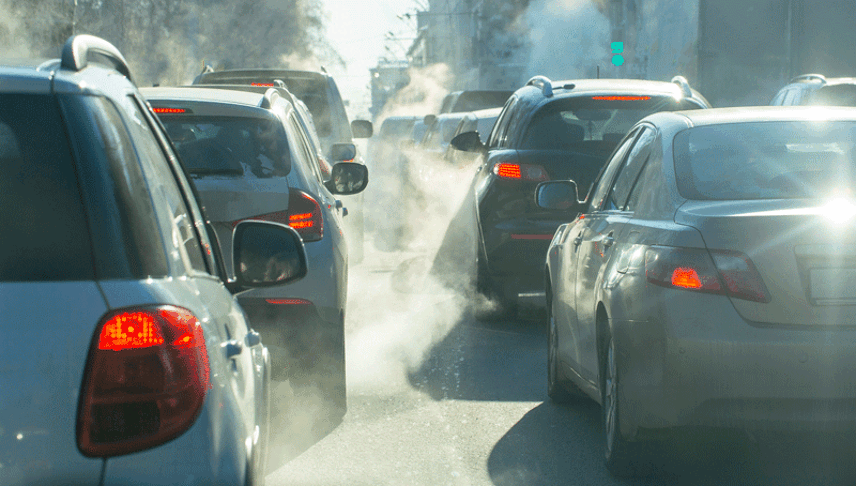‘Dieselgate revisited’: Environmental lawyers take UK Government to task over alleged diesel emissions cheating

The basis of the complaints is a new analysis from the International Council on Clean Transportation (ICCT). Published today (22 March), the analysis reveals that more than 200 vehicle models – 77% of those analysed by the Council – have reported ‘suspiciously high’ levels of nitrogen oxide (NOx) emissions. 40% of those analysed revealed ‘extreme’ NOx levels.
Models included in this cohort come from almost all major manufacturers. In the UK, the ICCT estimates, 2.4 million of the models are currently in use. A further 16.6 million are in use across the EU.
The ICCT’s conclusion is that these models may be fitted with emissions defeat devices, which are illegal in both the UK and EU. Defeat devices switch off or reduce the effectiveness of an engine’s emissions control system in certain conditions, meaning that vehicles with them fitted will produce higher levels of emissions in real life than the regulatory limits the models passed in testing.
In its first-of-a-kind complaints, ClientEarth is seeking to hold governments to account for their failure to ensure that the entire automotive manufacturing industry is reducing the operational emissions of vehicles in line with binding climate targets and air pollution requirements.
Covid-19 lockdowns aside, transport has been the UK’s highest-emitting sector since 2016, with road transport accounting for the lion’s share of emissions. Road transport is also a key contributor to air pollution. One 2022 study concluded that 97% of UK homes are in locations experiencing air pollution exceeding the limits recommended by the World Health Organisation (WHO).
ClientEarth lawyer Katie Nield said: “Over seven years after the first Dieselgate scandal, it’s astounding to see that so little has changed. We’re sending legal complaints to three national governments to demand that the dirty legacy of Dieselgate is addressed once and for all. This was a betrayal of consumer and public trust and authorities cannot continue to let auto manufacturers off the hook.”
Polluter pays
It bears noting that ClientEarth is advocating for an outcome in which the automotive industry is made to foot the bill for recalling vehicles if necessary and paying for the true cost of the pollution caused. It has floated the creation of a ‘Dieselgate Clean Up Fund’ to be paid into by manufacturers and allocated by national Governments.
The idea is that Governments should use the funds to provide scrappage schemes for low-income individuals and small businesses, replacing their polluting cars with suitable alternatives. These could be free public transport, shared cargo bikes or shared cars as well as individual electric vehicles (EVs). The fund could also be put towards vehicle retrofitting and public and active transport networks.
Nield said: “The excessive emissions enabled by these prohibited defeat devices are not only adding to the damage suffered by people breathing toxic air but also to the burden on the NHS and the economy.
“During an unprecedented cost of living crisis, it is more important than ever that governments ensure that auto manufacturers foot the bill to clean up the excessively polluting vehicles they sold to people.”
ClientEarth has stated that if the UK, France and Germany “fail to act swiftly” on a voluntary basis, it will work with partners to start formal legal proceedings in front of national courts.
edie has reached out to the UK Government’s Department for Transport (DfT) and Department of Energy Security and Net-Zero for a comment on the legal complaints.
A DfT spokesperson said: “Abuse of the system is not acceptable and since 2016, we have massively increased oversight of emissions tests and established a specialised unit to test vehicles in the real world, as well as in labs, and investigate suspicious practice – and are looking to bring forward stronger powers.”
The specialised unit, the Market Surveillance Unit, operates within the DVSA. Its duty is to test vehicles and parts to ensure compliance with environmental and health and safety standards, including lab and real-world tests of emissions.
edie also reached out to the Society for Motor Manufacturers and Traders (SMMT), the UK’s largest industry body for the automotive sector. A SMMT spokesperson said: “The automotive industry is fully focused on improving air quality and driving down CO2, investing billions to bring ever lower and zero emission vehicles to consumers. All vehicles are certified by the responsible authority before they are put on the market, and subject to market surveillance to ensure they operate as approved for sale. While we cannot comment on test results from individual models, as the regulation and Court Ruling recognise, temporary suspension of some systems under certain conditions is necessary to avoid severe engine damage.
“Delivering significant improvement in the environmental performance of the vehicle parc ultimately depends on fleet renewal, which, in turn, depends on new technologies being affordable, accessible and demanded by consumers.”
© Faversham House Ltd 2023 edie news articles may be copied or forwarded for individual use only. No other reproduction or distribution is permitted without prior written consent.